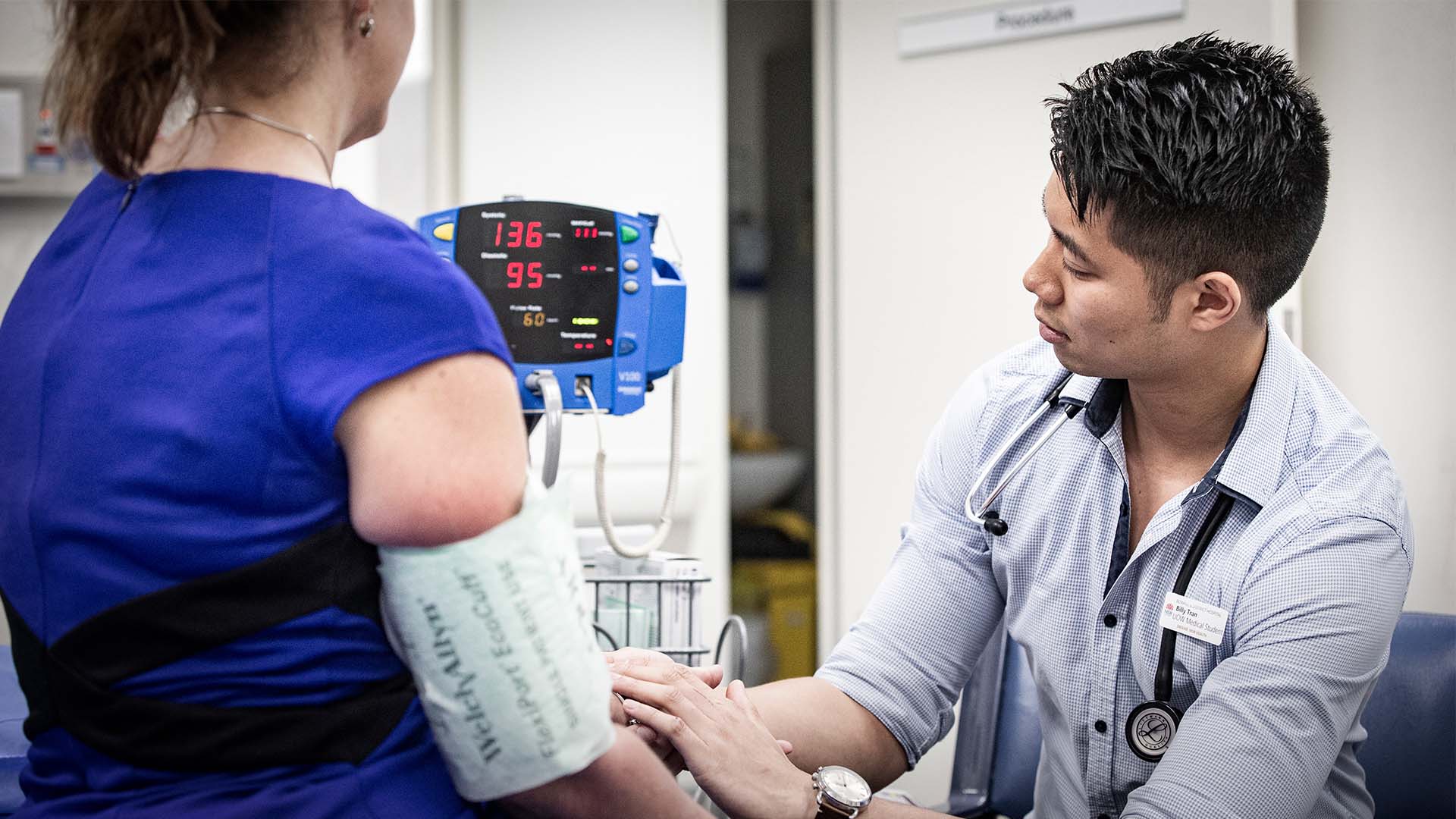Rhondda and Margaret Williams Scholarship for Rural Medicine will benefit medical students from rural and regional parts of Australia

The Australian Institute of Health and Welfare recently reported that around 20 per cent of Australia's rural population is unable to see a GP due to the scarcity of doctors around them. At the same time, almost 60 per cent admitted they had no access to specialists in their region.
This situation not only impacts people's quality of life but their health outcomes. On average, Australians living in rural and remote areas have shorter lives, higher levels of disease and injury and poorer access to health services than people living in metropolitan areas.
That's why the newly-established - and high-value - medical scholarship available to students at the University of Wollongong (UOW) is a welcome solution to the ongoing issue of shortages of rural doctors in Australia.
The Rhondda and Margaret Williams Scholarship for Rural Medicine has been established by a generous philanthropic gift from Rhondda Williams, in memory of her late mother Margaret Williams, to support applicants from rural and regional areas in their goal of becoming a doctor and serving their rural communities.
"I wanted to create an opportunity to give someone a leg up the way my mother Margaret did for me. I was the first in my family to attend university and this was made possible by the support of my mother and a commonwealth scholarship," Rhondda said.
For Associate Professor David Garne, Director of Community, Primary, Remote and Rural in UOW's School of Medicine, the University's focus on training doctors in regional and rural medicine can be positive for entire communities.
"Having more doctors in rural, remote areas of Australia means that people not only have the care they need but also trustworthy doctors who become part of their communities. This grant will support countless students into the future while also boosting the health of entire regions."
Rhondda Williams believes that the scholarship will address the real needs of people living in rural communities by helping to train the best medical staff to treat them.
UOW Graduate Medicine's mission has always been to close the gaps between regional and metropolitan Australia to make access to patient-centric and cost-effective health care a fundamental right, not a privilege - available to patients in all geographic settings.
Currently, 60 per cent of UOW medical graduates end up working outside capital cities and 27 per cent work in a designated rural setting, which is an outstanding result. To understand what it means to practise medicine in remote communities, all UOW students spend significant time undertaking short- and long-term clinical placements in rural hospitals, primary care and community health facilities.
The Rhondda and Margaret Williams Scholarship for Rural Medicine will provide significant financial support to eligible UOW medical students, allowing them to focus on studies and their ultimate goal - becoming patient-centred doctors serving their local communities.
ABOUT THE SCHOLARSHIP
The Rhondda and Margaret Williams Scholarship for Rural Medicine, one of UOW's most transformational and prestigious medical scholarships, has been designed to attract and support aspiring medical students from rural, regional and remote Australia to pursue a Doctor of Medicine degree. The scholarship also aims to encourage students to return to rural Australia post-graduation to practise medicine within these communities.
Each recipient will receive $100,000 over the duration of their four-year degree. As part of the scholarship, they will be required to complete their Phase 3 placement in a rural area.
The scholarship is now open for applications here.






